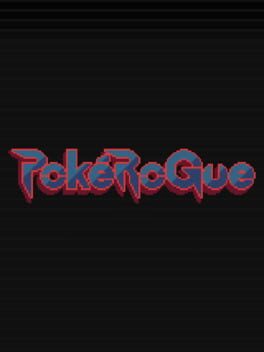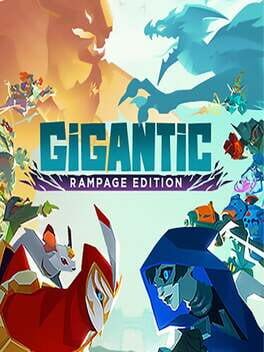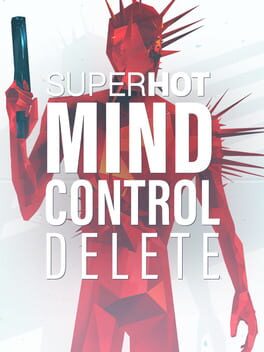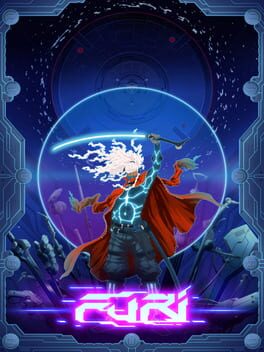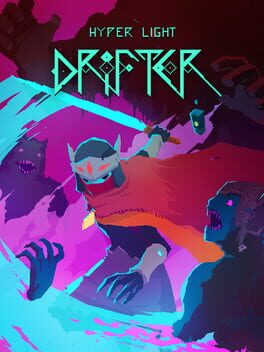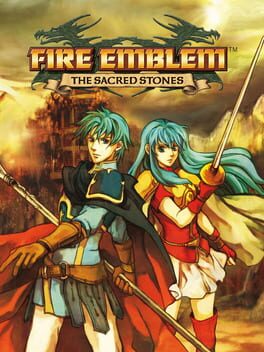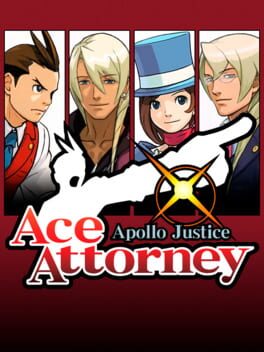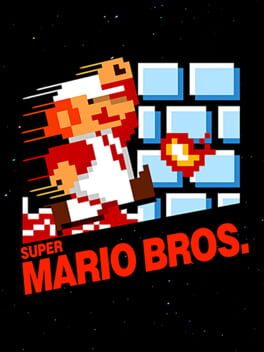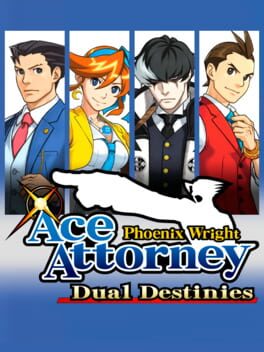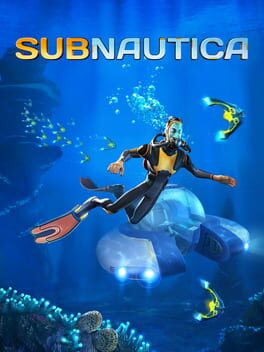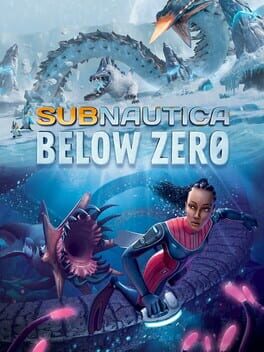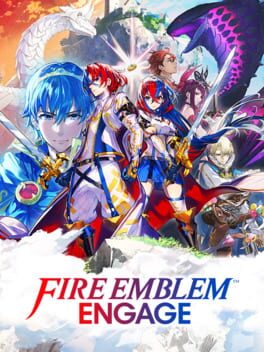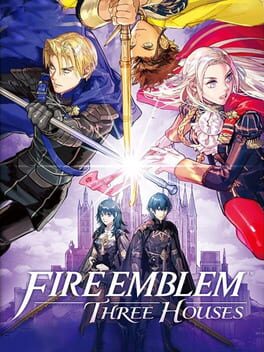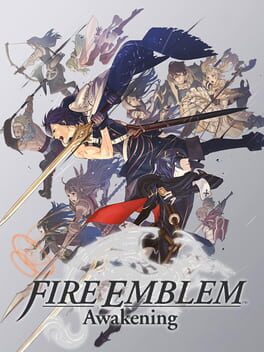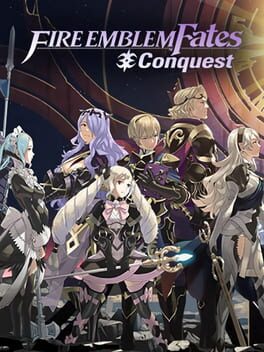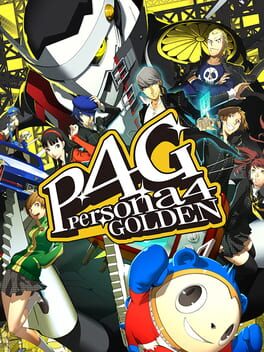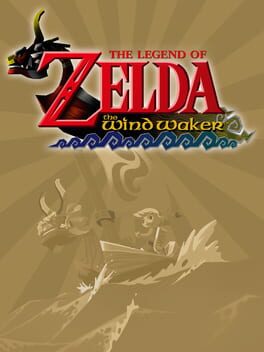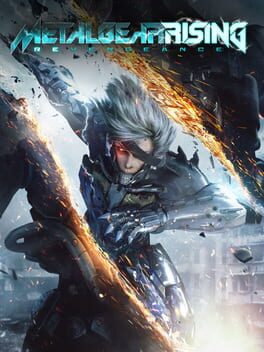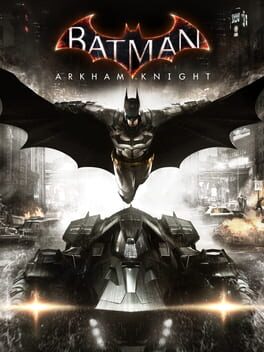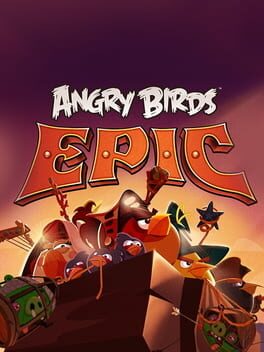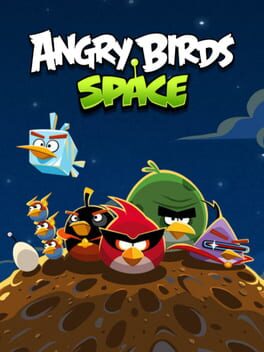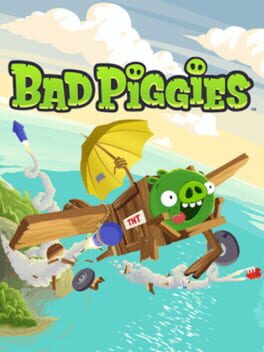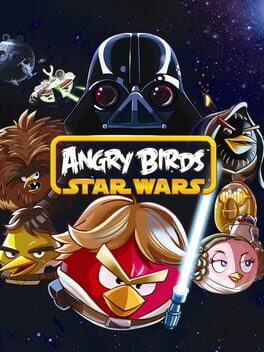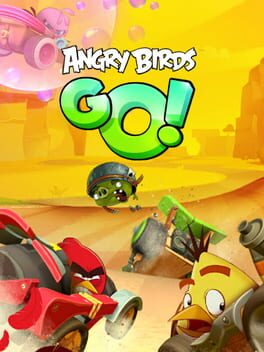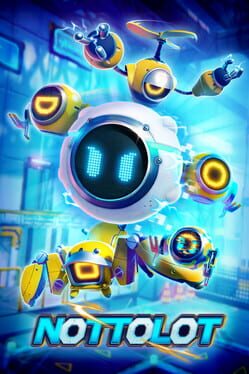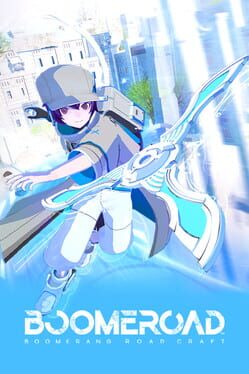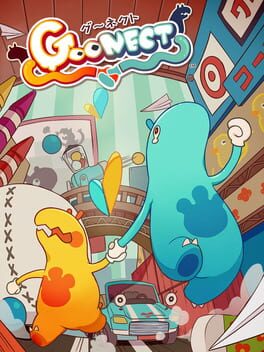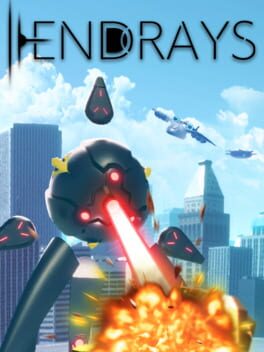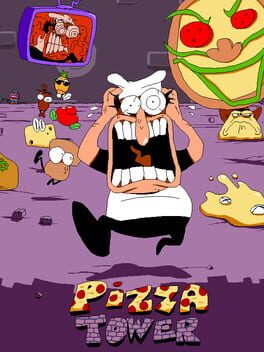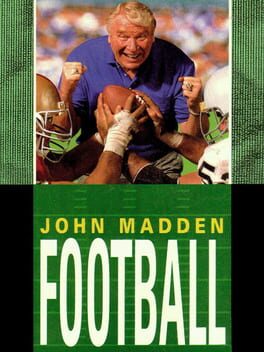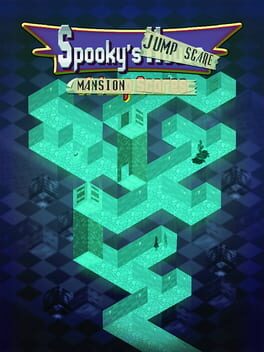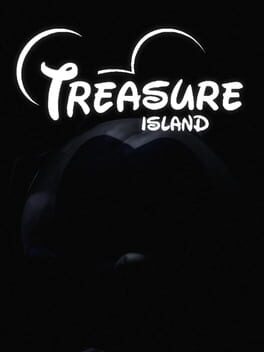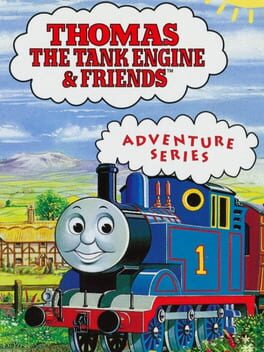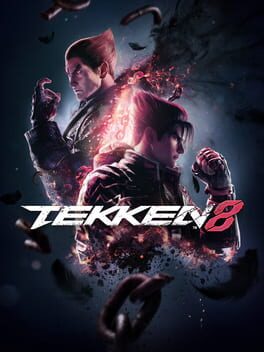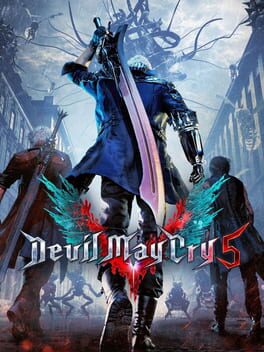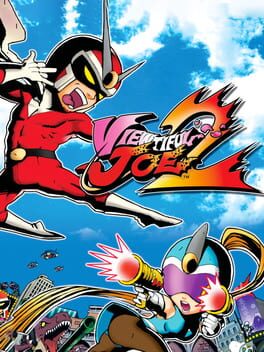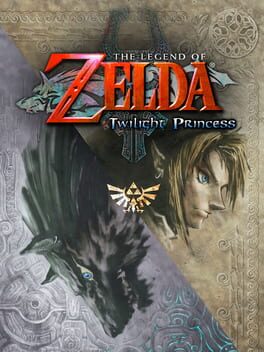CustomEpicness
72 reviews liked by CustomEpicness
Hi-Fi Rush
2023
Friends, loved ones, we gather here today to remember our good friend Hi-Fi Rush
The cliche saying "life comes at you fast" is apt to describe Hi-Fi Rush. It simultaneously announced and released at the end of what I would generously describe as a very mid Xbox game presentation in January 2023 to the delight of half-asleep gamers watching everywhere.
Hi-Fi Rush is rhythm-based character action game that had unique gameplay. It was forgiving to casual audiences so as to acclimate them to rhythm aspects of the game, but had aspects about it that made it the most hardcore character action game out there if you wanted it to be. If you wanted the highest ranking. If you wanted Chai to be holding a real guitar, you had to earn that shit in blood.
The game embraced a fun cast of characters. Embraced a saturday morning cartoon setting and story. It made Xenogears references when half-jokingly describing running out of budget for the last act of the game. It had licensed music from bands like Nine Inch Nails. Hi-Fi Rush was truly a hi-fi rush that made thousands of people think the game was tailor-made for them. Simply by being more in line with what people actually like. It was nice to see as such cases of personality and life being that it was rare to see such on a major publisher level.
Hi-Fi Rush was pushed out into the world to be loved, and to help boost a rapidly dying gaming platform, but actually mostly that first thing...
But mostly that second thing, actually.
The cancer of corporate consolidation and power, a time when optimal financialization is the only language those unrightfully holding the reigns of the industry speak. That is what killed a moderately successful game studio. Lack of passion or enthusiasm didn't kill Hi-Fi Rush. A financial officer running numbers and determining a sequel would make X amount of dollars less than a Call of Duty skin killed Hi-Fi Rush.
So as we lay them down to rest, we celebrate Hi-Fi Rush as it reminded gamers of a time when all games both big and small were released to be enjoyed unconditionally; with the upfront price tag of exceptional games were the beginning, middle and end of what was asked to own it.
Sadly, those days are snuffed out. You must now rent and subscribe to begin to be pumped with complicit, tedious gameplay trends that feel more diluted with every repackaging. Will we die with capitalism? Probably. Shit crazy out here, b.
Whether or not you cherished the life of Tango, or it's products like Evil Within or Hi-Fi Rush, you must understand that gaming on consoles is dead. Dead until the console platform holders release their own Steam Deck and it's probably going to be lame as fuck compared to a Steam Deck if your name is not Nintendo, but whatever.
Rest in peace, Hi-Fi Rush.
The cliche saying "life comes at you fast" is apt to describe Hi-Fi Rush. It simultaneously announced and released at the end of what I would generously describe as a very mid Xbox game presentation in January 2023 to the delight of half-asleep gamers watching everywhere.
Hi-Fi Rush is rhythm-based character action game that had unique gameplay. It was forgiving to casual audiences so as to acclimate them to rhythm aspects of the game, but had aspects about it that made it the most hardcore character action game out there if you wanted it to be. If you wanted the highest ranking. If you wanted Chai to be holding a real guitar, you had to earn that shit in blood.
The game embraced a fun cast of characters. Embraced a saturday morning cartoon setting and story. It made Xenogears references when half-jokingly describing running out of budget for the last act of the game. It had licensed music from bands like Nine Inch Nails. Hi-Fi Rush was truly a hi-fi rush that made thousands of people think the game was tailor-made for them. Simply by being more in line with what people actually like. It was nice to see as such cases of personality and life being that it was rare to see such on a major publisher level.
Hi-Fi Rush was pushed out into the world to be loved, and to help boost a rapidly dying gaming platform, but actually mostly that first thing...
But mostly that second thing, actually.
The cancer of corporate consolidation and power, a time when optimal financialization is the only language those unrightfully holding the reigns of the industry speak. That is what killed a moderately successful game studio. Lack of passion or enthusiasm didn't kill Hi-Fi Rush. A financial officer running numbers and determining a sequel would make X amount of dollars less than a Call of Duty skin killed Hi-Fi Rush.
So as we lay them down to rest, we celebrate Hi-Fi Rush as it reminded gamers of a time when all games both big and small were released to be enjoyed unconditionally; with the upfront price tag of exceptional games were the beginning, middle and end of what was asked to own it.
Sadly, those days are snuffed out. You must now rent and subscribe to begin to be pumped with complicit, tedious gameplay trends that feel more diluted with every repackaging. Will we die with capitalism? Probably. Shit crazy out here, b.
Whether or not you cherished the life of Tango, or it's products like Evil Within or Hi-Fi Rush, you must understand that gaming on consoles is dead. Dead until the console platform holders release their own Steam Deck and it's probably going to be lame as fuck compared to a Steam Deck if your name is not Nintendo, but whatever.
Rest in peace, Hi-Fi Rush.
PokéRogue
2024
To nintendoamerica3@hotmail.com
Cc reggiefilsaime@gmail.com +70102 others
Big Fat Fucking Stacks of Cash
Dearest Nintendo,
Just steal this dude's fucking game and sell it for 20 bucks. "Oh, how do I make money? Oh, it's so hard being a mega-corporation worth billions of dollars, waaaa" Just steal his game and put it on the Nintendo Switch. What's he going to do, sue you? It's literally a free 100 million dollars. Why would you not do this?
Yours sincerely,
The only smart person in the history of video games (Henry Vines)
Cc reggiefilsaime@gmail.com +70102 others
Big Fat Fucking Stacks of Cash
Dearest Nintendo,
Just steal this dude's fucking game and sell it for 20 bucks. "Oh, how do I make money? Oh, it's so hard being a mega-corporation worth billions of dollars, waaaa" Just steal his game and put it on the Nintendo Switch. What's he going to do, sue you? It's literally a free 100 million dollars. Why would you not do this?
Yours sincerely,
The only smart person in the history of video games (Henry Vines)
For a particular brand of TF2ber comment section dweller, Gigantic was a golden goose. For years, you'd hear whispered tales of a mythical shooter that was everything the community had ever wanted. A game with an infinite skill ceiling, euphoric movement, a colourful cartoony personality, and a perfect midway between the flashy abilities of Overwatch and the customisability of Paladins with legitimate accessibility for both the competitive and casual scenes. It was the perfect game. But most of us (Heathens) were blinded by humanity's ego and allowed this perfect artefact of humankind to crumble into the aether, destined to exist only in the squalor of secret community LAN matches and seedy dive bar discord servers.
Egads, the Son of man returns! While I am no longer the kind of hero shooter acolyte itching for this game's revival, my younger brother is, and he shattered glass with the screams of excitement when he found out this was coming back. How could I not join in? Immediately, my eyebrows were raised by a few things. Gearbox has somehow got their name on this now. Abstraction Games are 'developing,' probably in the same way they developed Baldur's Gate 3 by helping with the Steam version and then plastering it on their website's front page. The original creators, Motiga, are nowhere to be found. Their name isn't on the game at all. Interviews indicate some of them had a small advisory role in this project. Still, I've found no evidence they'll be receiving compensation for their work in, you know, making the game, so hopefully, this kind of post-mortem revival project doesn't become normal. It is a situation pungent with the scent of an executive getting too excited about social media analytics and the quick buck he believes could be acquired. The continued server issues do not help the case.
But the real story here is none of this. I played this game for the first time yesterday. This shit is a fucking MOBA! How could you guys lie to me like this for years? Gigantic originally shut down in July 2018, and for over half a decade, people told me how exciting of a hero shooter it was and how it revolutionised movement shooters as a genre! It's a fucking MOBA! You sit there in a shitty team fight, and everyone sprays everyone else with multi-coloured goo, and the people who've played the game before run away, and the people who actually want to have fun die. Like every other fucking MOBA! I have been the target of one of the longest and most effective psyops in history and I am distraught!
Egads, the Son of man returns! While I am no longer the kind of hero shooter acolyte itching for this game's revival, my younger brother is, and he shattered glass with the screams of excitement when he found out this was coming back. How could I not join in? Immediately, my eyebrows were raised by a few things. Gearbox has somehow got their name on this now. Abstraction Games are 'developing,' probably in the same way they developed Baldur's Gate 3 by helping with the Steam version and then plastering it on their website's front page. The original creators, Motiga, are nowhere to be found. Their name isn't on the game at all. Interviews indicate some of them had a small advisory role in this project. Still, I've found no evidence they'll be receiving compensation for their work in, you know, making the game, so hopefully, this kind of post-mortem revival project doesn't become normal. It is a situation pungent with the scent of an executive getting too excited about social media analytics and the quick buck he believes could be acquired. The continued server issues do not help the case.
But the real story here is none of this. I played this game for the first time yesterday. This shit is a fucking MOBA! How could you guys lie to me like this for years? Gigantic originally shut down in July 2018, and for over half a decade, people told me how exciting of a hero shooter it was and how it revolutionised movement shooters as a genre! It's a fucking MOBA! You sit there in a shitty team fight, and everyone sprays everyone else with multi-coloured goo, and the people who've played the game before run away, and the people who actually want to have fun die. Like every other fucking MOBA! I have been the target of one of the longest and most effective psyops in history and I am distraught!
SUPERHOT.
What matters is what happens between these two words.
SUPERHOT.
It wants to peel back the layers of your skull.
SUPERHOT.
Feast on my flesh until nothing remains.
.
3 thoughts on SUPER[SUPER]HOT.
Mind - Katana reveals all; the swift executions and parry-play are at the essence of what works within this new framework of roguelike repetition because it prevents the action from jerking-off in bullet-time. The staccato begins to act in service of rhythmic motions where physicality is no longer a disembodied affair of firearms and trajectories locating the feedback loop in the anonymity of manikins instead putting our ever-fragile avatar at the center of the violence in ways that renders the thrills of deletion by putting emphasis on the cut. Distances and deflections. How to bridge the gap between the two. Invoking. Channeling. SUPERHOT.
Control - Hacks.exe; they elevate the core systems without rendering the whole ugly. It’s impossible to escape the allure of the metagame. “Killheal.hack” and “Lightreflex.hack” are kings. And kings do not matter in sequences whose escalating difficulty so clearly correlates with the aesthetics of kinesthesia - strategies are established in style before substance, a perfect action-run framed in replays, so challenge is (and must remain) a modular canvas here. Strong back-half. Exhausting waves met with zen. Repress the urge to shatter - obsidian is thy weapon. Sliced rubies and broken ores. A mist of forms. I wish the experience went further. I wish I didn’t have so many choices. I wish I could look somewhere else than myself by being tied to the grazing of bullets and the compression of space. At its purest SUPERHOT triggers like a reversion of time itself; me, knowing the momentum of damage and enemies so completely that I can speedrun the game. Play it, actually, at a regular pace. Ain’t that something. A slow game, but present.
Delete - Self-vore; masturbartory reflexivity bores me. But SUPERHOT was so close. Its gradual subtraction of every expansions made to the original concept pushes past the cringe by committing to the bit. One by one actions and movement mechanics are taken away from the player, thrown into the blender. But at the end of each metatextual step of euthanasia, we’re given the option to give up. Press [E] to access the text - end the level before it's even started. The game should have left us to rot in there. Let the player figure out new ways to still assert dominance over its environment in the absence of tools to do so. The game’s not inventive enough - in both mechanics and level-design - to do that. A shame. All that’s left, then, is a language only dispensed by the screen - our usual one-way mirrors. Ten minutes of me pressing [E] to get the syllables drooling out of my mouth. Sweet nothingness lost in Amygdalatropolis. Yelling that same sentence into the void.
SUPER
HOT
SUPER
HOT
SUPER
HOT
SUPER
HOT
SUPER
HOT
SUPER
HOT
SUPER
[Just a hollow sense of progression and power]
HOT.
What matters is what happens between these two words.
SUPERHOT.
It wants to peel back the layers of your skull.
SUPERHOT.
Feast on my flesh until nothing remains.
.
3 thoughts on SUPER[SUPER]HOT.
Mind - Katana reveals all; the swift executions and parry-play are at the essence of what works within this new framework of roguelike repetition because it prevents the action from jerking-off in bullet-time. The staccato begins to act in service of rhythmic motions where physicality is no longer a disembodied affair of firearms and trajectories locating the feedback loop in the anonymity of manikins instead putting our ever-fragile avatar at the center of the violence in ways that renders the thrills of deletion by putting emphasis on the cut. Distances and deflections. How to bridge the gap between the two. Invoking. Channeling. SUPERHOT.
Control - Hacks.exe; they elevate the core systems without rendering the whole ugly. It’s impossible to escape the allure of the metagame. “Killheal.hack” and “Lightreflex.hack” are kings. And kings do not matter in sequences whose escalating difficulty so clearly correlates with the aesthetics of kinesthesia - strategies are established in style before substance, a perfect action-run framed in replays, so challenge is (and must remain) a modular canvas here. Strong back-half. Exhausting waves met with zen. Repress the urge to shatter - obsidian is thy weapon. Sliced rubies and broken ores. A mist of forms. I wish the experience went further. I wish I didn’t have so many choices. I wish I could look somewhere else than myself by being tied to the grazing of bullets and the compression of space. At its purest SUPERHOT triggers like a reversion of time itself; me, knowing the momentum of damage and enemies so completely that I can speedrun the game. Play it, actually, at a regular pace. Ain’t that something. A slow game, but present.
Delete - Self-vore; masturbartory reflexivity bores me. But SUPERHOT was so close. Its gradual subtraction of every expansions made to the original concept pushes past the cringe by committing to the bit. One by one actions and movement mechanics are taken away from the player, thrown into the blender. But at the end of each metatextual step of euthanasia, we’re given the option to give up. Press [E] to access the text - end the level before it's even started. The game should have left us to rot in there. Let the player figure out new ways to still assert dominance over its environment in the absence of tools to do so. The game’s not inventive enough - in both mechanics and level-design - to do that. A shame. All that’s left, then, is a language only dispensed by the screen - our usual one-way mirrors. Ten minutes of me pressing [E] to get the syllables drooling out of my mouth. Sweet nothingness lost in Amygdalatropolis. Yelling that same sentence into the void.
SUPER
HOT
SUPER
HOT
SUPER
HOT
SUPER
HOT
SUPER
HOT
SUPER
HOT
SUPER
[Just a hollow sense of progression and power]
HOT.
Furi
2016
Does anyone else find this endearingly cheap? Charmed by the lack of hair physics and any coherent art direction? Wistfully smiling at hands clipping into bodies during cutscenes? Squishing the cheeks of the stupendously ugly characters with nothing behind the eyes? No? Alright.
It's pretty good. If by 'good' I mean brain-destroyingly disjointed and frequently terrible on every level, that isn't the actual moment-to-moment gameplay of the world-class boss fights. Which, coincidentally, I do.
Furi, as a narrative work, does not exist. It is a collection of Resident Evil camera angles, mind-numbing diatribes poorly voice acted by Vanny from FNAF Security Breach and some funky-looking dude with one walk cycle strolling at 1 mile per hour. I know there's supposed to be a story. I know it's trying to have things like 'meaning' and 'symbolism' like other big boy indie games, but there isn't, and it doesn't. I went to town a few months back on Katana Zero's story, a similarly misguided collection of gibberish, but I was very endeared by it. The difference is in the way it's told. Even if it maintains a self-serious facade, Katana Zero presents its story with bright colours, explosions, and other ridiculous bells and whistles. It's, if nothing else, exciting. Or even just excited. Either way, there's energy. Furi has nothing of the sort; it is a deadened trod through slightly ugly backgrounds and uglier character designs while Roger Rabbit over here keeps gabbing about who knows what to an unusually rendered model of the Team Fortress 2 scout who does not care. It is the same kind of lame didacticism that YouTube comment section bait like Virtual Insanity launders to pretend it has something interesting to say. Art is never about what you say. It's about how you say it. Having meaning and making me care that you have meaning are two very different tasks. It's never a question of grasping what Furi is going for, it's only a matter of holding on. It's so uncompelling that the whole thing is rendered effervescent. Words come and go, moments of pathos come and go, story beats come and go. Like whispers in the wind. It sucks!
But there's more to the game than the auto walk button. Though, y'know. Pre-rendered cutscenes? Look into it. I might not like looking at the game or listening to it (ok, the soundtrack is pretty good, if a touch overrated), but there's one more sense that matters, and it trumps the rest of the experience. I adore how this game feels.
I'm addicted to attack patterns. When people tell me a boss fight in a game requires 'rote memorisation', I start clapping my hands like a toddler. Something about the learning process, mastery over an enemy in a game, is the peak of satisfaction to me. That's all this game has to offer me, encounter-wise—peak satisfaction.
Every boss falls somewhere in this excellent spectrum between a twin-stick bullet hell and a rhythm game hack-and-parry, with nearly any individual point on it working just as well as any other. Tekken battle vs. a lightning-fast ninja requiring snap reflexes and free jazz rhythms? Great! 5-phase Enter The Gungeon robot fight with a zillion projectiles? Awesome! Invisible sniper rifle lady who runs away from you for an hour? Fantasti- ok, that one was annoying, but still. Cool! Every fight is electrifying in completely new ways, and it's exciting to see the game continually top itself while maintaining a very consistent difficulty curve (with one kinda clever diegetic drop-off). With most boss rush games, people seem to prefer the 'epic highs and lows of high school football' approach, but I love a clean on-ramp.
And a quick aside: what a clever way to have six or seven-phase boss fights! They've cracked a way for the learning to happen without a game over. Regenerating one life after a successful phase makes mistakes much less frustrating and makes a clean run-through after a game over much more consistent. But them healing to full after you lose a life means you'll never lose the satisfaction of earning progress. You leave this game with that same ecstatic rush you do something like Sekiro, and the knowledge if you had to fight any of these bosses again right now, you could probably beat them on the first try. It's just the best sensation, and now there's much less repetition required to get you there. Even the visuals feel more satisfying in motion, the crackle of the sword reflecting your performance, the shonen slow motion parry, it all starts to sing! Man, I wish this story wasn't so empty.
(touches my hand to my sports commentator earpiece)
Oh. Wow! Really?
This just in, I'm so sorry folks, I was completely wrong. This game does have a theme. How could I have been so blind? Bugs Bunny over there is his inner voice! Like his conscience! And the whole game was actually about learning to trust your conscience! Sparkle on! Its Wednesday! Don't forget to be yourself! You were right YouTube comments, this game's story is great!
If you're thinking I'm being a bit harsh, you're right. There is nothing I like more than being really mean to a game I thoroughly enjoyed playing. But there is nothing I hate more than self-seriousness without purpose. Imagine if the terrible dialogue and one-sided monologues weren't there. Imagine if the didactic hammer swings of capital C Commentary were traded for any subtlety. Imagine if the grandiose self-seriousness was in service of Commentary, which actually had meat on its bones. Imagine if the devs of this 10/10 compilation of character action game fights didn't feel the need to impose a malformed ""indie game"" story onto their thunderous euphoria. It would be so much better! I should QA for every game. This is how we save the art form.
And yes, Virtual Insanity fucking sucks.
It's pretty good. If by 'good' I mean brain-destroyingly disjointed and frequently terrible on every level, that isn't the actual moment-to-moment gameplay of the world-class boss fights. Which, coincidentally, I do.
Furi, as a narrative work, does not exist. It is a collection of Resident Evil camera angles, mind-numbing diatribes poorly voice acted by Vanny from FNAF Security Breach and some funky-looking dude with one walk cycle strolling at 1 mile per hour. I know there's supposed to be a story. I know it's trying to have things like 'meaning' and 'symbolism' like other big boy indie games, but there isn't, and it doesn't. I went to town a few months back on Katana Zero's story, a similarly misguided collection of gibberish, but I was very endeared by it. The difference is in the way it's told. Even if it maintains a self-serious facade, Katana Zero presents its story with bright colours, explosions, and other ridiculous bells and whistles. It's, if nothing else, exciting. Or even just excited. Either way, there's energy. Furi has nothing of the sort; it is a deadened trod through slightly ugly backgrounds and uglier character designs while Roger Rabbit over here keeps gabbing about who knows what to an unusually rendered model of the Team Fortress 2 scout who does not care. It is the same kind of lame didacticism that YouTube comment section bait like Virtual Insanity launders to pretend it has something interesting to say. Art is never about what you say. It's about how you say it. Having meaning and making me care that you have meaning are two very different tasks. It's never a question of grasping what Furi is going for, it's only a matter of holding on. It's so uncompelling that the whole thing is rendered effervescent. Words come and go, moments of pathos come and go, story beats come and go. Like whispers in the wind. It sucks!
But there's more to the game than the auto walk button. Though, y'know. Pre-rendered cutscenes? Look into it. I might not like looking at the game or listening to it (ok, the soundtrack is pretty good, if a touch overrated), but there's one more sense that matters, and it trumps the rest of the experience. I adore how this game feels.
I'm addicted to attack patterns. When people tell me a boss fight in a game requires 'rote memorisation', I start clapping my hands like a toddler. Something about the learning process, mastery over an enemy in a game, is the peak of satisfaction to me. That's all this game has to offer me, encounter-wise—peak satisfaction.
Every boss falls somewhere in this excellent spectrum between a twin-stick bullet hell and a rhythm game hack-and-parry, with nearly any individual point on it working just as well as any other. Tekken battle vs. a lightning-fast ninja requiring snap reflexes and free jazz rhythms? Great! 5-phase Enter The Gungeon robot fight with a zillion projectiles? Awesome! Invisible sniper rifle lady who runs away from you for an hour? Fantasti- ok, that one was annoying, but still. Cool! Every fight is electrifying in completely new ways, and it's exciting to see the game continually top itself while maintaining a very consistent difficulty curve (with one kinda clever diegetic drop-off). With most boss rush games, people seem to prefer the 'epic highs and lows of high school football' approach, but I love a clean on-ramp.
And a quick aside: what a clever way to have six or seven-phase boss fights! They've cracked a way for the learning to happen without a game over. Regenerating one life after a successful phase makes mistakes much less frustrating and makes a clean run-through after a game over much more consistent. But them healing to full after you lose a life means you'll never lose the satisfaction of earning progress. You leave this game with that same ecstatic rush you do something like Sekiro, and the knowledge if you had to fight any of these bosses again right now, you could probably beat them on the first try. It's just the best sensation, and now there's much less repetition required to get you there. Even the visuals feel more satisfying in motion, the crackle of the sword reflecting your performance, the shonen slow motion parry, it all starts to sing! Man, I wish this story wasn't so empty.
(touches my hand to my sports commentator earpiece)
Oh. Wow! Really?
This just in, I'm so sorry folks, I was completely wrong. This game does have a theme. How could I have been so blind? Bugs Bunny over there is his inner voice! Like his conscience! And the whole game was actually about learning to trust your conscience! Sparkle on! Its Wednesday! Don't forget to be yourself! You were right YouTube comments, this game's story is great!
If you're thinking I'm being a bit harsh, you're right. There is nothing I like more than being really mean to a game I thoroughly enjoyed playing. But there is nothing I hate more than self-seriousness without purpose. Imagine if the terrible dialogue and one-sided monologues weren't there. Imagine if the didactic hammer swings of capital C Commentary were traded for any subtlety. Imagine if the grandiose self-seriousness was in service of Commentary, which actually had meat on its bones. Imagine if the devs of this 10/10 compilation of character action game fights didn't feel the need to impose a malformed ""indie game"" story onto their thunderous euphoria. It would be so much better! I should QA for every game. This is how we save the art form.
And yes, Virtual Insanity fucking sucks.
Hyper Light Drifter
2016
Years have passed since I’ve played my beloved Hyper Light Drifter. I wanna say I played this in 2016(?), a shrimple 14 year old girl who only knew it from a 20 second twitter clip that was rlly emotionally evocative. Didn’t know one thing about the gameplay, went fuck it we ball mode and played it. It was, back then, one of my favorite games ever, and over the years I began to doubt that. It’s no-dialogue story gimmick, good music, and catchy title were the only bits that stuck with me as years passed. I thought I’d been duped a bit emotionally by some easily marketable ideas, and that I wss some kinda ‘cool games poser’.
Do you know how happy I am to report that I was right in this case? I’ve been right a lot in this way recently- replaying Soul Hackers and Bastion lately showed me that I actually underrated or didn’t fully grasp how good some of these games were, and I’m really glad I hissed away my initial urge to avoid childhood joys out of embarrassment.
Here’s some history I think is an interesting little primer: I like three of the Zelda games. Played most of em. Like 15 of them probably? I genuinely hate all but three: Zelda 1, Minish Cap, and Four Swords (I’m a bit of a Game Boy Bitch it seems. Never had one growing up but I am!). Zelda 1 is like- one of the first games I recall playing. My dad’s parents sold their childhood SNES and it’s games but I did grow up using their old NES for some reason. They amassed a pretty good selection I think given the fact some weird poor kid from the middle of nowhere was making the buying decisions: Zelda 1 and 2, Blades of Steel, NES Golf, Final Fantasy 1, and Mario 2. I played the hell outta Zelda 2 the most I think. It was kinda infuriating! I wanted all the answers!
Later on in life, I really took a liking to Zelda 1. It’s simple, everything’s pretty to the point, and there ain’t many games like Just Zelda 1 made today. Like- you’ll have kinda similar things, right? But then there’ll be an extended segment that makes you go “….Oh. That’s Link To The Past, right.” and it kills the enjoyment I have, genuinely! Just think of LttP- ugh! What a- what a fucking specific and weird and unapproachable dull thing. Link to the Past.
Anyway- what I like in Z1 is it’s specificity and simultaneous lack thereof. Every time I get an item in Zelda 1, I know what it does immediately. If it’s long enough since I’ve upgraded a piece of equipment, I can feel a hankering for the eventual upgrade of it. If I ain’t seen a secret area in a bit, my mind tunes to look for them effectively.
Most importantly, though: the plot (however simple it is in Zelda 1) is a transfer of information. You don’t make a lot of active plot progress until the end of the game in Zelda 1. You have the NES game’s manual to tell you what is happening, and you have whatever story clues are contained in the individual moments. What’s happening here, though, is a structured pattern of plot-by-learning. Not exposition, really. Just other people having info, and the story forming as you’re given more context for how it all concludes. Nothing is ‘happening’, though. However, this is story a type of story I find universally compelling. Especially once you get into the nitty-gritty- who else knows that thing you just learned, and why didn’t they tell you before?
Zelda 1’s story isn’t that interesting, really. Like let’s be honest- I’m not gonna call it the masterclass in simple plot communication. But like…..I certainly remember it more fondly today than anything that happened in Ocarina looking back. Hyper Light Drifter takes the addicting and lovely parts of this structure to the extreme: information is conveyed through pure emotional connection. You see images, hear some tone-setting music, your heart does the rest of the work. You really do not need to hear words, you just need to understand at the base level what is most important in each individual scene.
Heck, it’s even got the hyperfocus on an underground dungeon world!
There’s a tendency to call this game cryptic that I really despise, though. It’s not. There’s this stupid thing where you can get the story of the game by obtaining these tablets that translate everything about the backstory and uh…you don’t need that. I’m the Hyper Light Hypewoman and I’m probably never doing it, honestly! Each part of this game is perfectly communicated. If you think there’s something missing it’s likely not that you misunderstood anything- it’s just That Simple, and your brain expects more.
What happens, as I see it- is incredibly simple. Our main character, THEE Hyper Light Drifter, awakens to find a disease they’ve had for a while worsening. They start blacking out for portions, seeing these visions of a beast killing them and sparking the end of humanity. Usually, at the end of these visions, a scary ass dog appears leading them in different directions. The Drifter trusts this dog for no good reason. Really, they shouldn’t based on the facts: these visions of the future they start getting feature the dog adjacent to themselves drowning within another creature’s maw, and civilization as a whole getting blown the fuck up.
We get context for the creature that will kill us and it’s supercomputer papaw throughout 4 episodic chapters. Universally, people are hurt by it after thinking they could approach it like any other situation. Not even the computer in some cases: just other species of lil peoples that suddenly get possessed by murderous ideology. These people have NO reason to trust others. Neither do you, kinda!
Another driftin’ sick fellow, though, dies shortly after risking life and limb to protect you. This reaffirms the Drifter’s inherent trust in others, and once the time comes, their trust is rewarded. They defeat the beast and escape alive and healthier after the scary ass dogthing leads them to safety. They’ve protected the world, but disabled their method of escape (the supercomputer that controlled the elevator system between the lower world and the surface). They will die, but alone with the dog and no one else now. Not from their painful sickness. It’s not perfect, but it could be considered better. And not to mention, life-affirming: it’s so difficult to trust others. I’ve been burned basically every time I’ve done it. It’s nice to consider this impulse still might not be worthless.
Hyper Light Drifter, overall, is a game about constant trust. It is a game full of secrets, where the artist's touches prompt you and reward you for trusting them. There's a universal Secret Symbol: you see it, you know something's there. Sometimes it's just a room with a key for ya to take. Isn't that nice? A lot of the times you land in a three-screen dungeon leading up to, you guessed it, a key. Sometimes it feels like you're being tricked. Could be a trick, even, honestly. But you always get a lil treat for your efforts. A reward for handing over your trust. There's a lot more about the game's design I think supports this philosophy but like- number one, I'm just gonna be repeating my words for like six more paragraphs if I do that, and number two: you don't want that at all. Like duh. That would blow. Not sure if what's about to follow is better, but like you'd hate it either way so I'll take those odds.
Okay, we already toyed with doing some Tim Rogers self-obsessed storytime bullshit during the Zelda Talk, but like- you either closed this review cuz of that or you’re itching for more. Ya want more? Oh, I got more.
In 2019 I was diagnosed with paranoid schizophrenia. I have never told my family this, and I didnt tell a single person in my life until 2023. It's like- a fairly well known fact now. In my everyday life, things have gotten harder to manage vis-a-vis that, but y’know, back then it was simple: my inner monologue was hateful towards myself, and I would sometimes say things out loud and immediately recognize I was having a vivid memory-hallucination so strong I forgot where I was. Between then and now, we’ve got one major difference: trust issues. It’s about to get a little heavy so y’know. Trigger warnings and what not. There’s like- usually two or three things people talk about when they say that, so I hope you know to save this tab for later if that hurts right now.
In the years between then and now, I’ve lost every person I trusted for the most part. Most of my childhood friends killed themselves or were killed by their families. One of these particular suicides, which happened in 2017, I walked in on after it had happened. Which was a lot to work with as a teen. There were things I promised them I’d do I never got to, and vice versa. Obviously I dont like- blame any of them. Thats a really unfair thing to do, I think. But it really hurt my ability to trust others. Still, though, I had to actively try to trust people when I could regardless of how much it was hurting me to do so. I've always been a hopeful little soul, and people looked to me constantly for inspiration or to uplift their mood. When you're met with all that, you can't let that crack at all. You have to be this perfect emblem for others, even though it sucks. For a long ass time, I did trust like- one particular person a lot (genuinely!) and that isn’t true any more. You’ll remember when I threw out 2023 earlier? They helped me a lot starting in like- 2022 to help me get past a lot of this shit. We talked nearly every day for like a year. They were kind in the moment when I tried to talk about the symptoms of my schizophrenic disorder which was like- pretty new to me! Hadn't had much of a chance to talk about it before, but now here's someone who knows all the terminology that I'm having to use right now!
So, early 2024 rolls around and I have a crazy schizophrenia hallucination episode. I live alone with no in-person support network at this point. I try to kill myself the same way my old best friend did back in 2017, just in a public park at night instead of a house. At some point shortly after I tell them this, they just never talk to me again. I shouldn’t say never- I still text them sometimes, they might respond with a simple sentence once every month. If I try and ask how they’re doing or if we can talk soon, it’s left on read. If I say “Hey I watched that movie you mentioned.” there’s a one in five chance they say “Cool, that one’s good.”
Needless to say- much of my day now is spent grappling with trust issues. Like most of the day. It’s my fulltime job type shit. caused not exclusively by this new issue. But it's certainly not helping, right? I do not trust any one which, y’know, sucks! That used to be like- easy to do! However stupid it might be, though, if someone asks me to trust them with something I do as asked. Always.
I am a quitter in a lot of ways, and a real self-aware idiot, but let one thing be known: I try the hell outta it when I do that shit. I have crazy trust issues that make me think that every kind act done to me is part of some larger ploy. That they only intend to use and betray my trust later. Every time I’ve ever had the “oh this person’s playing nice they Actually Hate You” alarm ring, I’ve been correct.
But like- it feels stupid to let the Brain Disease Currently Putting Me Down win, right? That’s my Real Fucking Life Vow to the world right there: I will never stop trusting people no matter how hard this shit gets. That’s what the got damn game is about. #HyperLightMentality #AntiHaterLifestyle
I guess the conclusion I want you to draw from all this info is: talk to people in your life, even if it hurts or sucks to do. Ya gotta trust people, I think, maybe. And uh- Hyper Light Drifter is a really great piece on how the power of trust extends beyond logical reason sometimes. Not in a like- sometimes you just gotta have faith bullshit happy ending way. More like- you'll have these self-aware moments where you recognize your trust in something is illogical or really unfair towards yourself, but you live with it regardless. Shouts out Heart Machine, heard they're making a weird spiritual sequel roguelike to this now? Kinda weird, right? I'm super down for whatever that is.
Do you know how happy I am to report that I was right in this case? I’ve been right a lot in this way recently- replaying Soul Hackers and Bastion lately showed me that I actually underrated or didn’t fully grasp how good some of these games were, and I’m really glad I hissed away my initial urge to avoid childhood joys out of embarrassment.
Here’s some history I think is an interesting little primer: I like three of the Zelda games. Played most of em. Like 15 of them probably? I genuinely hate all but three: Zelda 1, Minish Cap, and Four Swords (I’m a bit of a Game Boy Bitch it seems. Never had one growing up but I am!). Zelda 1 is like- one of the first games I recall playing. My dad’s parents sold their childhood SNES and it’s games but I did grow up using their old NES for some reason. They amassed a pretty good selection I think given the fact some weird poor kid from the middle of nowhere was making the buying decisions: Zelda 1 and 2, Blades of Steel, NES Golf, Final Fantasy 1, and Mario 2. I played the hell outta Zelda 2 the most I think. It was kinda infuriating! I wanted all the answers!
Later on in life, I really took a liking to Zelda 1. It’s simple, everything’s pretty to the point, and there ain’t many games like Just Zelda 1 made today. Like- you’ll have kinda similar things, right? But then there’ll be an extended segment that makes you go “….Oh. That’s Link To The Past, right.” and it kills the enjoyment I have, genuinely! Just think of LttP- ugh! What a- what a fucking specific and weird and unapproachable dull thing. Link to the Past.
Anyway- what I like in Z1 is it’s specificity and simultaneous lack thereof. Every time I get an item in Zelda 1, I know what it does immediately. If it’s long enough since I’ve upgraded a piece of equipment, I can feel a hankering for the eventual upgrade of it. If I ain’t seen a secret area in a bit, my mind tunes to look for them effectively.
Most importantly, though: the plot (however simple it is in Zelda 1) is a transfer of information. You don’t make a lot of active plot progress until the end of the game in Zelda 1. You have the NES game’s manual to tell you what is happening, and you have whatever story clues are contained in the individual moments. What’s happening here, though, is a structured pattern of plot-by-learning. Not exposition, really. Just other people having info, and the story forming as you’re given more context for how it all concludes. Nothing is ‘happening’, though. However, this is story a type of story I find universally compelling. Especially once you get into the nitty-gritty- who else knows that thing you just learned, and why didn’t they tell you before?
Zelda 1’s story isn’t that interesting, really. Like let’s be honest- I’m not gonna call it the masterclass in simple plot communication. But like…..I certainly remember it more fondly today than anything that happened in Ocarina looking back. Hyper Light Drifter takes the addicting and lovely parts of this structure to the extreme: information is conveyed through pure emotional connection. You see images, hear some tone-setting music, your heart does the rest of the work. You really do not need to hear words, you just need to understand at the base level what is most important in each individual scene.
Heck, it’s even got the hyperfocus on an underground dungeon world!
There’s a tendency to call this game cryptic that I really despise, though. It’s not. There’s this stupid thing where you can get the story of the game by obtaining these tablets that translate everything about the backstory and uh…you don’t need that. I’m the Hyper Light Hypewoman and I’m probably never doing it, honestly! Each part of this game is perfectly communicated. If you think there’s something missing it’s likely not that you misunderstood anything- it’s just That Simple, and your brain expects more.
What happens, as I see it- is incredibly simple. Our main character, THEE Hyper Light Drifter, awakens to find a disease they’ve had for a while worsening. They start blacking out for portions, seeing these visions of a beast killing them and sparking the end of humanity. Usually, at the end of these visions, a scary ass dog appears leading them in different directions. The Drifter trusts this dog for no good reason. Really, they shouldn’t based on the facts: these visions of the future they start getting feature the dog adjacent to themselves drowning within another creature’s maw, and civilization as a whole getting blown the fuck up.
We get context for the creature that will kill us and it’s supercomputer papaw throughout 4 episodic chapters. Universally, people are hurt by it after thinking they could approach it like any other situation. Not even the computer in some cases: just other species of lil peoples that suddenly get possessed by murderous ideology. These people have NO reason to trust others. Neither do you, kinda!
Another driftin’ sick fellow, though, dies shortly after risking life and limb to protect you. This reaffirms the Drifter’s inherent trust in others, and once the time comes, their trust is rewarded. They defeat the beast and escape alive and healthier after the scary ass dogthing leads them to safety. They’ve protected the world, but disabled their method of escape (the supercomputer that controlled the elevator system between the lower world and the surface). They will die, but alone with the dog and no one else now. Not from their painful sickness. It’s not perfect, but it could be considered better. And not to mention, life-affirming: it’s so difficult to trust others. I’ve been burned basically every time I’ve done it. It’s nice to consider this impulse still might not be worthless.
Hyper Light Drifter, overall, is a game about constant trust. It is a game full of secrets, where the artist's touches prompt you and reward you for trusting them. There's a universal Secret Symbol: you see it, you know something's there. Sometimes it's just a room with a key for ya to take. Isn't that nice? A lot of the times you land in a three-screen dungeon leading up to, you guessed it, a key. Sometimes it feels like you're being tricked. Could be a trick, even, honestly. But you always get a lil treat for your efforts. A reward for handing over your trust. There's a lot more about the game's design I think supports this philosophy but like- number one, I'm just gonna be repeating my words for like six more paragraphs if I do that, and number two: you don't want that at all. Like duh. That would blow. Not sure if what's about to follow is better, but like you'd hate it either way so I'll take those odds.
Okay, we already toyed with doing some Tim Rogers self-obsessed storytime bullshit during the Zelda Talk, but like- you either closed this review cuz of that or you’re itching for more. Ya want more? Oh, I got more.
In 2019 I was diagnosed with paranoid schizophrenia. I have never told my family this, and I didnt tell a single person in my life until 2023. It's like- a fairly well known fact now. In my everyday life, things have gotten harder to manage vis-a-vis that, but y’know, back then it was simple: my inner monologue was hateful towards myself, and I would sometimes say things out loud and immediately recognize I was having a vivid memory-hallucination so strong I forgot where I was. Between then and now, we’ve got one major difference: trust issues. It’s about to get a little heavy so y’know. Trigger warnings and what not. There’s like- usually two or three things people talk about when they say that, so I hope you know to save this tab for later if that hurts right now.
In the years between then and now, I’ve lost every person I trusted for the most part. Most of my childhood friends killed themselves or were killed by their families. One of these particular suicides, which happened in 2017, I walked in on after it had happened. Which was a lot to work with as a teen. There were things I promised them I’d do I never got to, and vice versa. Obviously I dont like- blame any of them. Thats a really unfair thing to do, I think. But it really hurt my ability to trust others. Still, though, I had to actively try to trust people when I could regardless of how much it was hurting me to do so. I've always been a hopeful little soul, and people looked to me constantly for inspiration or to uplift their mood. When you're met with all that, you can't let that crack at all. You have to be this perfect emblem for others, even though it sucks. For a long ass time, I did trust like- one particular person a lot (genuinely!) and that isn’t true any more. You’ll remember when I threw out 2023 earlier? They helped me a lot starting in like- 2022 to help me get past a lot of this shit. We talked nearly every day for like a year. They were kind in the moment when I tried to talk about the symptoms of my schizophrenic disorder which was like- pretty new to me! Hadn't had much of a chance to talk about it before, but now here's someone who knows all the terminology that I'm having to use right now!
So, early 2024 rolls around and I have a crazy schizophrenia hallucination episode. I live alone with no in-person support network at this point. I try to kill myself the same way my old best friend did back in 2017, just in a public park at night instead of a house. At some point shortly after I tell them this, they just never talk to me again. I shouldn’t say never- I still text them sometimes, they might respond with a simple sentence once every month. If I try and ask how they’re doing or if we can talk soon, it’s left on read. If I say “Hey I watched that movie you mentioned.” there’s a one in five chance they say “Cool, that one’s good.”
Needless to say- much of my day now is spent grappling with trust issues. Like most of the day. It’s my fulltime job type shit. caused not exclusively by this new issue. But it's certainly not helping, right? I do not trust any one which, y’know, sucks! That used to be like- easy to do! However stupid it might be, though, if someone asks me to trust them with something I do as asked. Always.
I am a quitter in a lot of ways, and a real self-aware idiot, but let one thing be known: I try the hell outta it when I do that shit. I have crazy trust issues that make me think that every kind act done to me is part of some larger ploy. That they only intend to use and betray my trust later. Every time I’ve ever had the “oh this person’s playing nice they Actually Hate You” alarm ring, I’ve been correct.
But like- it feels stupid to let the Brain Disease Currently Putting Me Down win, right? That’s my Real Fucking Life Vow to the world right there: I will never stop trusting people no matter how hard this shit gets. That’s what the got damn game is about. #HyperLightMentality #AntiHaterLifestyle
I guess the conclusion I want you to draw from all this info is: talk to people in your life, even if it hurts or sucks to do. Ya gotta trust people, I think, maybe. And uh- Hyper Light Drifter is a really great piece on how the power of trust extends beyond logical reason sometimes. Not in a like- sometimes you just gotta have faith bullshit happy ending way. More like- you'll have these self-aware moments where you recognize your trust in something is illogical or really unfair towards yourself, but you live with it regardless. Shouts out Heart Machine, heard they're making a weird spiritual sequel roguelike to this now? Kinda weird, right? I'm super down for whatever that is.
I don't know, man. There's plenty to like here—charming characters, a cute story, semi-compelling political drama, good (enough) maps, gorgeous GBA aesthetic, whatever. But I've been frustrated and dragging my feet playing this. There is a tiny little fence between me and having fun, and no matter what I do, I cannot hop over it and be compelled to finish this game. That fence is named Seth.
Let me be clear. Lovely guy. Seems really sweet. But he is a sponge on the hypothalamus of my brain. He sucks up every drop of serotonin produced while playing this game. Instead of pumping my fist and shaking hands with another comically muscular man before we ride in a helicopter and are tricked into a death battle with a technologically superior alien species that only one of us escapes alive, I'm sucking my thumb and honk-shooing in my nightcap and gown beside a brick-and-mortar fireplace. Seth is the single most overpowered character I have ever seen in any video game. Still, with like 5 or 6 chapters left in the entire game, he one-shots every normal enemy and two-shots every boss. What are we doing here? Seth bends the very map design around him. Choke-points are no longer threatening. I stand slack-jawed as I drop the red-haired menace in front of 300 enemy goons, praying they will be enough to end his reign. Yet he stands steadfast as they all line up and take turns missing every attack and dying instantly. The Australian government cannot produce enough iron lances to feed into the Seth-powered enemy chipper. He is less a man and more an industrial machine.
Seth has ruined the thrill of permadeath. He has ruined my investment in the combat. He has stolen my crops, and he has pillaged my coffers. I never want to see this man again!
There is a lot to be said about how novel the pacing of this game is and how much I enjoy saving only at the end of chapters (and the chapter structure itself), but I'll save it for when I actually finish one of these things.
Let me be clear. Lovely guy. Seems really sweet. But he is a sponge on the hypothalamus of my brain. He sucks up every drop of serotonin produced while playing this game. Instead of pumping my fist and shaking hands with another comically muscular man before we ride in a helicopter and are tricked into a death battle with a technologically superior alien species that only one of us escapes alive, I'm sucking my thumb and honk-shooing in my nightcap and gown beside a brick-and-mortar fireplace. Seth is the single most overpowered character I have ever seen in any video game. Still, with like 5 or 6 chapters left in the entire game, he one-shots every normal enemy and two-shots every boss. What are we doing here? Seth bends the very map design around him. Choke-points are no longer threatening. I stand slack-jawed as I drop the red-haired menace in front of 300 enemy goons, praying they will be enough to end his reign. Yet he stands steadfast as they all line up and take turns missing every attack and dying instantly. The Australian government cannot produce enough iron lances to feed into the Seth-powered enemy chipper. He is less a man and more an industrial machine.
Seth has ruined the thrill of permadeath. He has ruined my investment in the combat. He has stolen my crops, and he has pillaged my coffers. I never want to see this man again!
There is a lot to be said about how novel the pacing of this game is and how much I enjoy saving only at the end of chapters (and the chapter structure itself), but I'll save it for when I actually finish one of these things.
seventeen years later apollo justice is a capital CG Cursed Game. harbinger of a new age which never really came- the apollo justice trilogy as a complete package is plainly awkward in how it languidly, disinterestedly follows its namesake. of course you can’t blame apollo justice for the decisions the IP made after it came out but apollo’s role in the franchise absolutely colors how this game is played now. now the game is a thracia 776-like experience, a darker, more punishing, more inconsequential story in the face of a broader conflict, except the two generations of warriors that flanked thracia 776 are both replaced by the one and only Phoenix Wright™.
it’s honestly doubtful that AJ receives the sheer abuse that investigations 1 or dual destinies does online, but it feels like the only game in the series that has yet to find a strong niche. the old guard has always held it apart from their beloved trinity, but yamazaki’s growing base of defenders doesn’t want to claim it either. its fans are often colored as the most vapid, rabid fans in the fanbase, relishing an imagined dynamic between klavier and apollo.
and certainly it’s not a difficult game to poke holes in. the game’s infamously fraught middle cases, regardless of how you view them, just don’t click together. yeah yeah, there are a lot of cinemasins “ding!” issues, but the cases also fall limp dramatically. in court there are scenes and even whole witness interrogations that don’t materially contribute to the core narrative of the mystery, as takumi envelops the player in minutiae to fill space. while both cases are about noble thieves and rotten cops, the game seems to shy away from its own subject matter at key moments. klavier, the series’ most passive rival, completely disengages from the injustice at hand when the corruption of law enforcement is exposed, even when he has a personal connection with the people at stake. apollo’s unique “gimmick” mechanic is also very weak, a task of observation that doesn’t engage with puzzle-solving in relation to the case at all.
but the game’s most glaring sign of incompleteness is the complete epic fail of an ending. the game goes out on a long limb to ground the player lucidly in this entry’s grand, time-spanning mystery. and the gamble pays off! there’s a lot of momentum that gets built up, all for the most bafflingly anticlimactic final day in trial of the entire series. i do not actually have much objection to how phoenix intrudes on the case, it’s not really revolutionary to have the mentor set the stage and deliver a couple pieces of evidence that help you clench the case. but the game completely fizzles after this. it’s so bizarre. for a franchise with so many infamously persistent final bosses, it’s insane how trivial the proceedings of the final court segment of this game are. right after managing a perfect passing-of-the-torch moment in AA3, they completely bungle it here. somehow.
but it’s inaccurate to label apollo justice a failed experiment, the tone and ideas the game is going for are still deployed and in place, if not exactly intact. right out of the gate apollo justice asks the player to consider possibilities that would be considered downright heretical in the rest of the main series. in the original trilogy, the shounen-like, operatic approach to good and evil is striking, but it often drains the game of moral dimension. sure, the games often flirt with the idea that maybe the protagonist would have to make a moral sacrifice, or that an antagonist was a profound victim before lashing out, but you’re always able to manage a perfect victory, in the end. every antagonist unilaterally goes too far in their plotting, even if they were hurt by the world or the people around them.
apollo justice dares to challenge this. the perfect victories that define the original trilogy are nowhere to be found. your catharsis is impeded as each subsequent not guilty verdict represents a new threshold to which you’re forced to subvert the justice system in order to free your unjustly accused clients. for the first time, it seems that the rot in the justice system might not just be a few corrupt Bad Men led by Wrong Ideologies, but instead a set of systemic failings, that the mechanics of justice itself might be at fault. for all of the games that have been centered on the expansion of the wright anything agency as a found family, apollo justice is the only game to lucidly cope with legacy, and how values, practices, and patterns of behavior are passed down (or often, more interestingly, withheld from being passed down).
the game’s final decision feels almost insulting given the current state of the game’s ending but i applaud that the final action the player takes is rendering an explicit moral judgment on a character. it’s an empty choice, but it demonstrates the strength of even the most trivial and obvious decision a person can make. more importantly, it invites every player, even the lowly klavier-apollo shipper, to consider the ethics of what actually happened here, that they are a creator of justice and not just a subject to it.
this attitude pulsates through the entire game. miraculously, ace attorney’s signature attention to detail when it comes to staging and presentation adapts perfectly to a more grounded, desperate story. the soundtrack is much more subdued overall but constantly poised to summon that classic pursuit cornered momentum. the animation maintains its expressive power while respecting and communicating the humanity of its subjects. all in all, apollo justice acquires a unique electricity no other game in the series has. this electricity carries you through even as you’re arguing about the location of a trash can a witness threw a pair of panties into or whatever
i’d consider myself something of an ace attorney superfan. this series’ creative calculus has a way of wringing out pathos that draws my focus to the screen unlike any other franchise. but i can’t deny that after having loved the series for so many years, it can feel weary in how it tells its stories with the same cadence, with the same structure underlying every case. even on the fiftieth replay, apollo justice still feels untamed. never definitive but always suggestive, my heart pours out for ace attorney four.
it’s honestly doubtful that AJ receives the sheer abuse that investigations 1 or dual destinies does online, but it feels like the only game in the series that has yet to find a strong niche. the old guard has always held it apart from their beloved trinity, but yamazaki’s growing base of defenders doesn’t want to claim it either. its fans are often colored as the most vapid, rabid fans in the fanbase, relishing an imagined dynamic between klavier and apollo.
and certainly it’s not a difficult game to poke holes in. the game’s infamously fraught middle cases, regardless of how you view them, just don’t click together. yeah yeah, there are a lot of cinemasins “ding!” issues, but the cases also fall limp dramatically. in court there are scenes and even whole witness interrogations that don’t materially contribute to the core narrative of the mystery, as takumi envelops the player in minutiae to fill space. while both cases are about noble thieves and rotten cops, the game seems to shy away from its own subject matter at key moments. klavier, the series’ most passive rival, completely disengages from the injustice at hand when the corruption of law enforcement is exposed, even when he has a personal connection with the people at stake. apollo’s unique “gimmick” mechanic is also very weak, a task of observation that doesn’t engage with puzzle-solving in relation to the case at all.
but the game’s most glaring sign of incompleteness is the complete epic fail of an ending. the game goes out on a long limb to ground the player lucidly in this entry’s grand, time-spanning mystery. and the gamble pays off! there’s a lot of momentum that gets built up, all for the most bafflingly anticlimactic final day in trial of the entire series. i do not actually have much objection to how phoenix intrudes on the case, it’s not really revolutionary to have the mentor set the stage and deliver a couple pieces of evidence that help you clench the case. but the game completely fizzles after this. it’s so bizarre. for a franchise with so many infamously persistent final bosses, it’s insane how trivial the proceedings of the final court segment of this game are. right after managing a perfect passing-of-the-torch moment in AA3, they completely bungle it here. somehow.
but it’s inaccurate to label apollo justice a failed experiment, the tone and ideas the game is going for are still deployed and in place, if not exactly intact. right out of the gate apollo justice asks the player to consider possibilities that would be considered downright heretical in the rest of the main series. in the original trilogy, the shounen-like, operatic approach to good and evil is striking, but it often drains the game of moral dimension. sure, the games often flirt with the idea that maybe the protagonist would have to make a moral sacrifice, or that an antagonist was a profound victim before lashing out, but you’re always able to manage a perfect victory, in the end. every antagonist unilaterally goes too far in their plotting, even if they were hurt by the world or the people around them.
apollo justice dares to challenge this. the perfect victories that define the original trilogy are nowhere to be found. your catharsis is impeded as each subsequent not guilty verdict represents a new threshold to which you’re forced to subvert the justice system in order to free your unjustly accused clients. for the first time, it seems that the rot in the justice system might not just be a few corrupt Bad Men led by Wrong Ideologies, but instead a set of systemic failings, that the mechanics of justice itself might be at fault. for all of the games that have been centered on the expansion of the wright anything agency as a found family, apollo justice is the only game to lucidly cope with legacy, and how values, practices, and patterns of behavior are passed down (or often, more interestingly, withheld from being passed down).
the game’s final decision feels almost insulting given the current state of the game’s ending but i applaud that the final action the player takes is rendering an explicit moral judgment on a character. it’s an empty choice, but it demonstrates the strength of even the most trivial and obvious decision a person can make. more importantly, it invites every player, even the lowly klavier-apollo shipper, to consider the ethics of what actually happened here, that they are a creator of justice and not just a subject to it.
this attitude pulsates through the entire game. miraculously, ace attorney’s signature attention to detail when it comes to staging and presentation adapts perfectly to a more grounded, desperate story. the soundtrack is much more subdued overall but constantly poised to summon that classic pursuit cornered momentum. the animation maintains its expressive power while respecting and communicating the humanity of its subjects. all in all, apollo justice acquires a unique electricity no other game in the series has. this electricity carries you through even as you’re arguing about the location of a trash can a witness threw a pair of panties into or whatever
i’d consider myself something of an ace attorney superfan. this series’ creative calculus has a way of wringing out pathos that draws my focus to the screen unlike any other franchise. but i can’t deny that after having loved the series for so many years, it can feel weary in how it tells its stories with the same cadence, with the same structure underlying every case. even on the fiftieth replay, apollo justice still feels untamed. never definitive but always suggestive, my heart pours out for ace attorney four.
Super Mario Bros.
1985
if you think this game “plays weird” and don’t get the hype i beg you to play 5 other NES platformers then come back, relax, and feel the lushness of the first true strand type game.
super mario bros is not the primordially simple jumping game it is often introduced as. platformers had ages to mature in the hypercompetitive arena of the arcade throughout the 70’s and early 80’s. aside from its understatedly elegant aesthetic, the ambition in SMB is in the elevation of movement from merely a mode of traversal to a gymnastic, expressive activity.
megaman, simon belmont, and ryu hayabusa are all transparently simple state machines— the amount of possible actions they can take is finite and countable. super mario bros did not invent momentum in platforming, nor was it the first to leverage the additional complications that a more involved system of movement entails. the friction between the player avatar and the ground. the acceleration from a dead stop to a full run. the short moment after taking your finger off the jump button before the character truly starts to fall. all the little intricacies and details compound to make mario a much more expressive vessel for a player to inhabit. what sets SMB apart is that the movement is honed to the extent it becomes even more natural than the comparatively simple systems of the above games.
mario’s body doesn’t literally move like the human form does, but negotiating the balance of a jump in mid-air, trying to establish steady footing on unhelpful terrain, and wheelin and dealing with newton’s first law in general is central to the human experience. in super mario bros, nintendo squarely refocuses the platformer from a cabaret of obstacles to a celebration of acrobatic motivity
and so, it became the bedrock upon which their castle was built
super mario bros is not the primordially simple jumping game it is often introduced as. platformers had ages to mature in the hypercompetitive arena of the arcade throughout the 70’s and early 80’s. aside from its understatedly elegant aesthetic, the ambition in SMB is in the elevation of movement from merely a mode of traversal to a gymnastic, expressive activity.
megaman, simon belmont, and ryu hayabusa are all transparently simple state machines— the amount of possible actions they can take is finite and countable. super mario bros did not invent momentum in platforming, nor was it the first to leverage the additional complications that a more involved system of movement entails. the friction between the player avatar and the ground. the acceleration from a dead stop to a full run. the short moment after taking your finger off the jump button before the character truly starts to fall. all the little intricacies and details compound to make mario a much more expressive vessel for a player to inhabit. what sets SMB apart is that the movement is honed to the extent it becomes even more natural than the comparatively simple systems of the above games.
mario’s body doesn’t literally move like the human form does, but negotiating the balance of a jump in mid-air, trying to establish steady footing on unhelpful terrain, and wheelin and dealing with newton’s first law in general is central to the human experience. in super mario bros, nintendo squarely refocuses the platformer from a cabaret of obstacles to a celebration of acrobatic motivity
and so, it became the bedrock upon which their castle was built
7 lists liked by CustomEpicness
by _YALP |
12 Games
by HenryVines |
31 Games
by HenryVines |
30 Games
by FallenGrace |
8 Games
by TimAlien |
8 Games
by letshugbro |
8 Games

